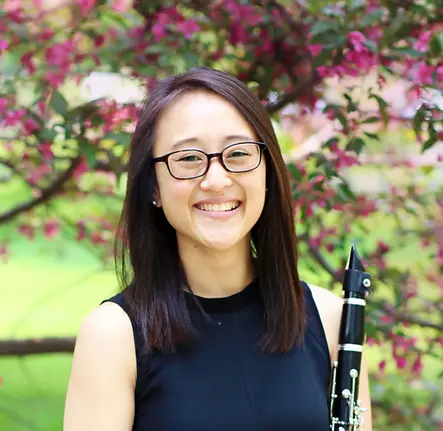
.png)

_png.png)

Clovis North Music Program History

The Clovis North Educational Center opened in the fall of 2007 as the 5th secondary school in the Clovis Unified School District with students in grades 7-12. David Lesser was the first Director of Bands along with Shawn Glyde, (percussion), Tiffany King, (color guard), and Heidi Franklin (orchestra). There were 17 students in the 9th grade band along with 50 students in the 7th/8th grade band.
In the fall of 2008 David Gabrielson was hired as an Assistant Band Director and took over the role of Orchestra Director as well. In the fall of 2009 Steve Dailey became the Assistant Director overseeing the Granite Ridge Bands and Jazz Bands and Arthur Howansky became the Director of Orchestras for CNEC.
In the fall of 2011 as Mr. Dailey departed CNEC Jose Vargas joined CNEC as Assistant Band Director overseeing the GR Bands and Assisting with the Marching Band and conductor of the CN Concert Band.
Color Guard Directors of CNEC have included, Tifanny King, (2007-2010), Guy Barnes, (2010), Patrick Porsche (2011,2012), Jaycee Wilson (2013-2015), Lynette Martinez (2016-2020), John Arevalo (2021-present).
Clovis North Music Purpose
Music education can have many purposes, including:
Language development
Music can help children learn vocabulary and other languages, and develop awareness of the sounds of language.
Social skills
Music is a social activity that can help students learn and practice social skills, and receive feedback on their performance.
Confidence
Learning an instrument or creating music can help children develop concentration, dedication, and persistence, which can lead to better classroom performance and test scores.
Memory
Music education requires memorizing lyrics, reading music, and remembering notes, which can strengthen the brain's memory center.
Stress relief
Music can help people express their emotions and alter their moods, and some research suggests that playing an instrument can reverse the body's natural response to stress.
Creativity
Music production can help children develop creative problem-solving skills by manipulating recordings and audio samples to create unique soundscapes.
Cultural awareness
Music can expose students to different cultures, geographical areas, time periods, and people as they learn different styles of music.
Math skills
Music and math are closely related, and learning math can help with learning music, and vice versa. Math can help with understanding the timing and tonality of music.
Meet The Clovis North Educational Center Team

David Lesser
Director of Instrumental Music

Jose Vargas
Assistant Director

Shawn Glyde
Marching Percussion Director / Music Arranger

Jaycee Wilson
Visual Coordinator / Guard Choreographer

John Aravelo
Color Guard Director

Johnathan Holmes
Visual Performance Coach

Carson Kimber
Visual / French Horn Performance Coach

Jordan Delatorre
Saxophone Performance Coach

Kevin Tieck
Drill Designer

Dr. Amelia Smith
Clarinet Performance Coach

Joshua Van Heusen
Bassoon Performance Coach

David Gabrielson
Assistant Director

Erik Dewhirst
Jazz Director / Area Elementary Director

Jim Rogers
Program Assistant / Performance Coach

Dave Glyde
Music Arranger

Key Poulan
Orchestra Director / Performance Coach

Cassandra Baber
Little Broncos Director / Color Guard Performance Coach

Caleb Brosnac
Visual / Trumpet Performance Coach

Ethan Allison
Visual & Low Brass Performance Coach

Arianna Knee
Flute Performance Coach

Tallon Overton
Visual / French Horn Performance Coach

Donald Barley
Trumpet Performance Coach

